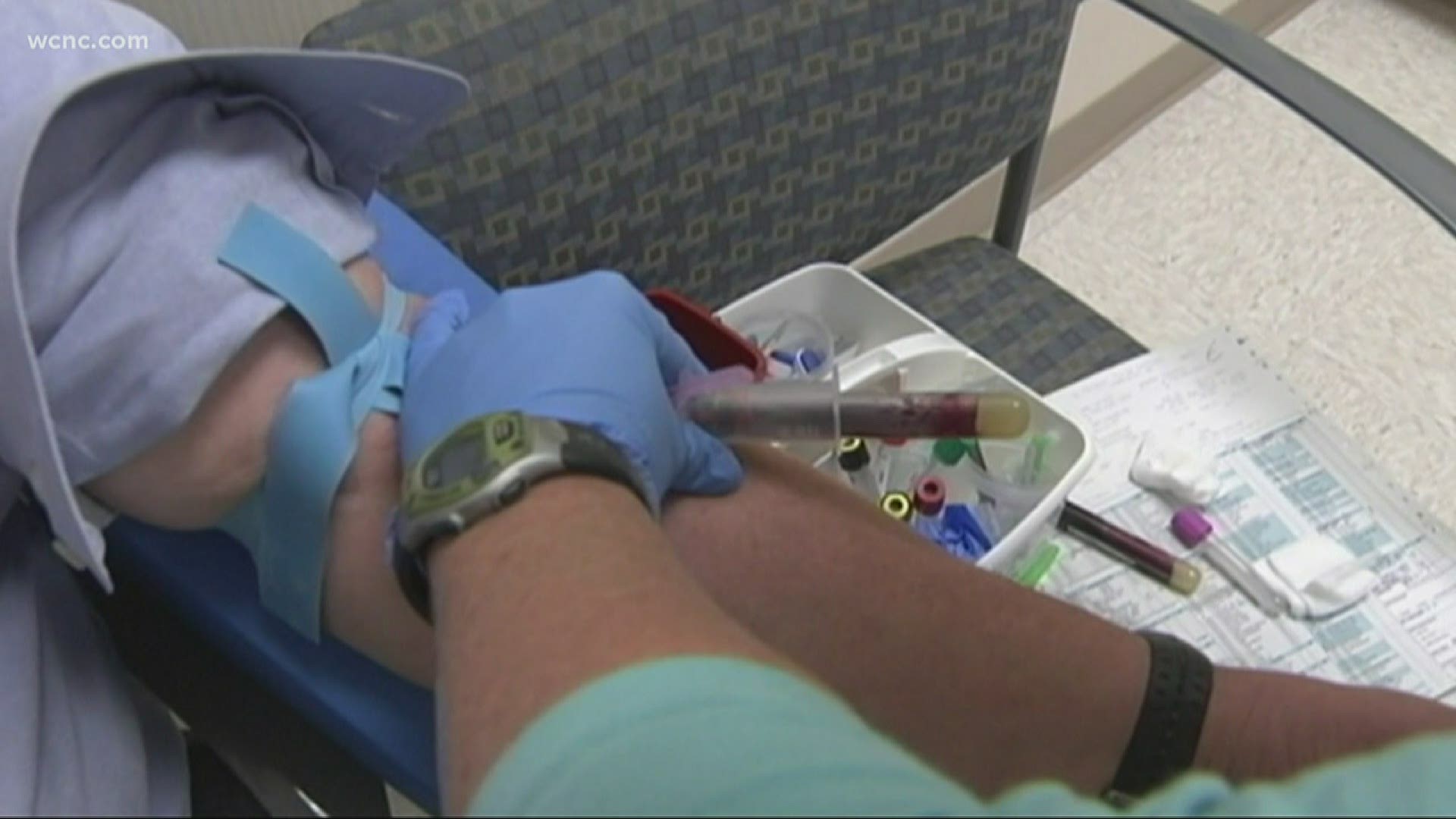CHARLOTTE, N.C. — A WCNC Charlotte Defenders investigation is revealing roadblocks for people who want to donate a potentially life-saving treatment.
Half a million people have now recovered from the coronavirus around the world. In the U.S., the FDA is encouraging people who have recovered from the virus to donate their plasma because the plasma could contain antibodies to help others fight the virus.
However, a woman is describing the major obstacles she’s faced while trying to donate her plasma. Raven McGregor, 27, said she battled coronavirus for two weeks, and now she wants to give back, but she’s finding out it’s not that simple.
For McGregor, the coronavirus was a living nightmare for about half a month.
“It was terrifying, I felt like I was drowning, “ McGregor said.
After she recovered, she wanted to help others who are still fighting the same enemy.
“I read that I could donate my plasma,” McGregor said.
However, McGregor said she was surprised by local health officials who’d been following her quarantine never asked her about donating.
“I thought that someone would reach out to me and say, ‘Hey you’ve recovered from this virus and now you help can others recover too’,” McGregor said.
The FDA is encouraging people like McGregor to donate plasma because it could contain antibodies that may help others fight off the disease.
According to the website for the Red Cross, collecting plasma is a necessary and urgent effort for potentially life-saving care.
However, McGregor said she called the Red Cross and was told she needed to be tested to ensure she’s no longer sick.
“I go to the Red Cross and they say you need this testing, go to your physician,” McGregor said. “I go to my physician and they’re like you need to go back to the Red Cross, so it’s a little bit frustrating.”
Dr. Ana-Maria Temple says the challenge for healthcare providers is finding a reliable antibody test.
“I’m trying to figure out which company has the most accurate antibody testing for COVID 19,” said Dr. Temple, a Charlotte pediatrician.
A spokesperson for the Red Cross told WCNC Charlotte the organization has collected plasma in other parts of the country, including New Jersey, but not in Charlotte at this point.
“I feel a lot of people aren’t going to put this much effort in,” said McGregor.
Both the Red Cross and the local pandemic response team told WCNC Charlotte they’re working on a development antibody testing in the Charlotte area.
“If I could just save one life with my antibodies, I would love to do that,” McGregor said.
The Red Cross said people need to be symptom-free for at least 28 days before donating or they can be 14 days free of symptoms if they have a doctor’s test to prove they’re negative for the virus.
MORE STORIES ON WCNC CHARLOTTE:

